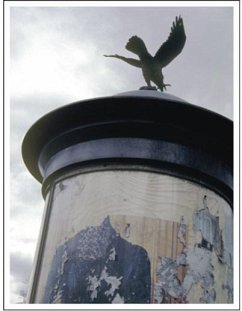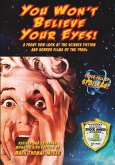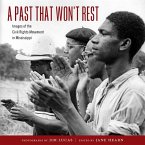Both deal with the pain of relationship, the seeming inevitability of separation and the mistrust that is its consequence. Women drift, lost and hostile, throughout the pages - they're masked or veiled; they stare from behind bars - sometimes metal, sometimes frail as gauze, or turn away, eyes averted. They are beautiful but isolated - the time for reconciliation has long passed. This isolation is reinforced by a sense of eroticised cruelty - on one page, a woman plucks out her tongue, on another she thrusts it through a ghostlike paper mask, its tip counterpointed by a single red nail. Bodies are branded, bandaged, broken; they're both scarred and vulnerable. A vibrant red apple declares multiple allusions - beauty, knowledge, temptation, betrayal. Benge's visual vocabulary is typically elusive, but in You Won't Be With Me Tomorrow he seems to examine a larger narrative. A young man is behind bars; a few pages later, stares at himself in a mirror in front of a closed door. A young boy puts his arm around a girl. They look beyond the frame at something troubling. And yet...within Benge's work, there is always unexpected beauty. Hope even. Amongst images of empty rotundas, retreating figures and vanishing planes, a closed door has panes of light, sunlight falls across a track. It's as if Benge, while chronicling the pain of connection, also suggests subtle ways forward: a wooden X beneath a bush may mean stop; it may also be a kiss.


